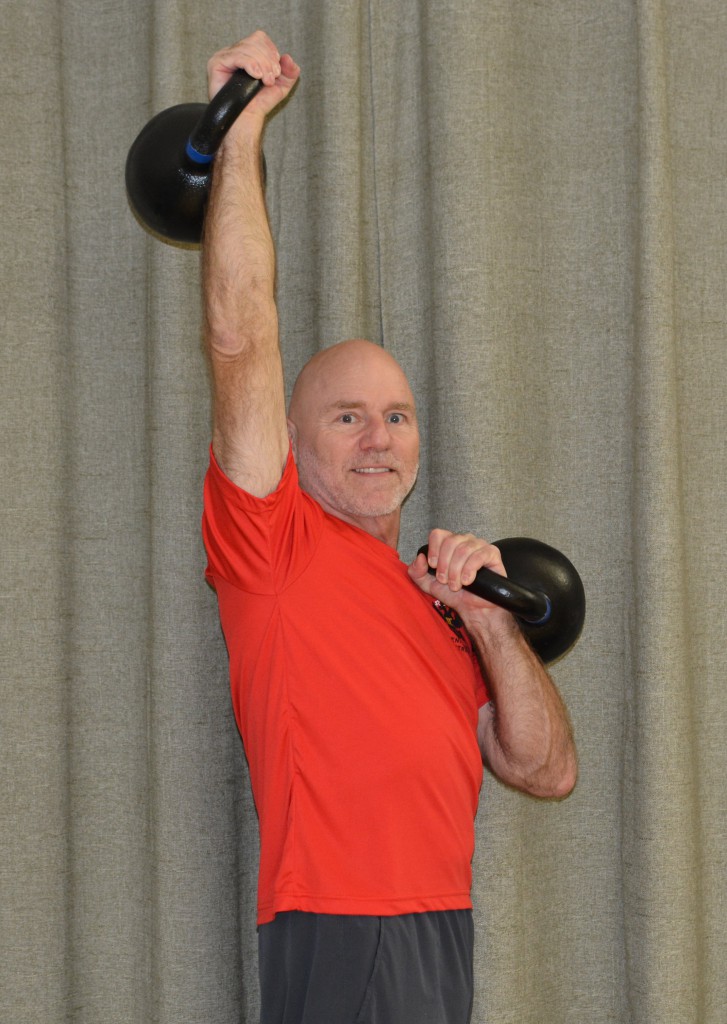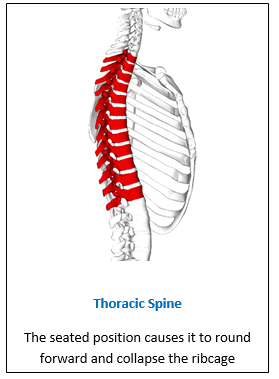
Most people treat exercise like it is a bad tasting prescription from the doctor. They HAVE TO do it because someone told them to do it. And what exactly are they supposed to do? Well, of course they need to get into shape, because if they get into shape they will reduce their risk of heart disease, cancer and premature death. At all costs we must avoid death. Bad news happy campers and kiddie troupers. It ain’t gonna happen. For most of us … death is unavoidable.
Here is an alternative plan. Exercise, work out, train, or play with the purpose of feeling better and being able to live life more fully. Make yourself strong and mobile and develop some endurance. As a result of your continued exercise program you should be able to engage in whatever physical activities give you joy.
If you are an American, you probably spend a lot of time at a computer, much of your day sitting at a desk texting, typing, or on the phone, and hour upon hour riding in a car. As a result of these many cumulative hours spent sitting on your all-too-wide and weak butt, you may be ill equipped to engage in many intense exercises for 1 hour, three times per week. This amount of exercise will probably not significantly change your weight. (That is mostly about diet and hormones.) These exercise programs may in fact cause you more harm than good. Furthermore, the thing you most need is to UNDO the damage done by the hours of maladaptation that is caused by sitting.
 What kind of bad stuff is happening to your body and to your natural athleticism as a result of all this seated work?
What kind of bad stuff is happening to your body and to your natural athleticism as a result of all this seated work?
- While you are seated your glutes are generally turned off (as are your abs). So when you stand your hip flexors will seem overly tight and your pelvis will tip forward. This puts stress (and excessive curvature) on your lower back.
- While working on the computer, your chest is collapsed (adversely affecting your breathing) and your shoulders are rounded forward. This causes your upper back (or thoracic spine) to become stuck and excessively curved in the opposite direction of your lower back.
- Your eyes are fixed on a computer screen in an intermediate distance. Your inner ear (responsible for balance and coordinated movement) is not being challenged because your body is not changing position.
So, consider this… Choose some fun and engaging exercises that will help offset or counteract the ill effects of the daily desk job demise.
The kettlebell could be the training tool you have been looking for that will help you begin your rehabilitation. Unlike most exercises on machines in a gym, kettlebell training requires you to stop sitting and stand up. This might be the very first step to improved posture and a better you!
The kettlebell swing, the most fundamental move of the RKC system, includes a strong contraction of the glutes at the top of the swing. This “hip-snap” helps open up the hip flexors and helps teach the athlete to once again contract the glutes during loaded movement. The kettlebell swing and the lunge position of the Turkish getup both work to open up or release your tight hip flexors.
Putting a kettlebell overhead will help mobilize your upper back (or thoracic spine). The kettlebell press, the kettlebell snatch, and the Turkish getup all involve movement with a weight overhead. You must develop a strong, braced posture and a lengthened, erect spinal position to master these techniques. Once your thoracic spine is mobile and you can neutrally align your pelvis, you are well on your way to improved posture and reaching your next level of athletic performance.
Your vision and vestibular system (the inner ear) will be stimulated whenever you move the torso. This occurs when you turn around, bend over, lie down, stand up, etc. The kettlebell swing and the kettlebell snatch both involve a hip hinge and a tipping forward of the torso. This action will provide a significant amount of sensory input to the brain from the vision and vestibular systems. An even greater challenge is provided to your balance and sense of 3D orientation while performing the Turkish getup.
The best exercise program for most people is one that UNDOES the damage caused by lack of daily mobility and the hours of our seated work. Exercise programs must make you feel better, move better, and be able to handle the daily demands of life. If you workout program isn’t fun, you probably will not be able to sustain the practice for a very long time.
Kettlebell training is fun and challenging and is an engaging skill practice. Regular practice of the basic kettlebell drills will help you undo some of the damages of the standard American working environment.
***
Jay Armstrong is a Senior RKC, 6 Degree Black Belt TKD, and Master Z-Health Trainer. The past 30 years have been dedicated to helping others develop confidence through increased strength and pain-free, exceptional mobility. His quest for knowledge continues. He runs The Kettlebell Club in Houston, Texas and can be reached here.